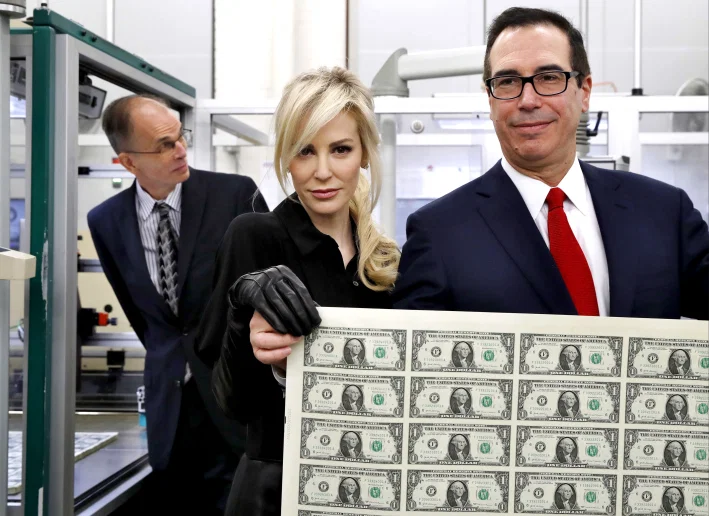Re-listing of Chinese telecoms shows China is too big to boycott
The American campaign to isolate and contain the world's second-largest economy is losing steam
Mid-level officials at the US Treasury Department and Securities Exchange Commission advised the New York Stock Exchange not to de-list China’s major mobile telephone providers, reversing an early announcement that the Chinese firms would be booted from the exchange in response to a White House order forbidding US citizens from owning them.
The NYSE’s turnabout just days after the de-listing announcement whipsawed the stocks of China Telecom, China Mobile and China Unicom, which fell sharply after the Dec. 31 de-listing announcement but snapped back in overnight trading in China and in Tuesday’s New York session.
The campaign to isolate and contain China’s economy continues to crumble. Last week the European Community drew a sharp rebuke from Trump Administration officials after it signed the Comprehensive Agreement on Investment with Beijing, which claims to offer European companies equal standing with Chinese competitors in key sectors of the Chinese market. In November, 16 Asian nations signed the Regional Comprehensive Economic Partnership, which among other things will eliminate most Chinese tariffs on Japanese imports. “The recently signed Regional Comprehensive Economic Partnership is poised to move the coronavirus-plagued world’s economic center of gravity toward Asia, particularly China,” the English-language edition of Japan’s Nikkei commented this morning.
In the case of the Trump Administration’s tough stance towards China, it appears that the furniture is being removed before the tenant is evicted.
The Trump Administration had claimed that the three major mobile providers along with other sanctioned companies supported the Chinese military. The NYSE did not elaborate on the reasons behind the reversal, which left market participants stupefied, except to say that it had consulted “relevant regulatory authorities.”
The NYSE’s surprise reversal follows a pattern of stringent sanctions against China announced by the Trump Administration, but quietly reversed by officials responsible for implementing them. That includes restrictions on the export of US computer chips and chip design software to Chinese companies on the Commerce Department “Entity List,” as I reported Jan. 4. China’s telecom equipment giant Huawei can’t buy advanced computer chips from US companies or from foreign companies that use American equipment or patents, but US companies obtain licenses to sell chips to intermediaries that sell them on to China. Huawei can’t buy US chip design software, but sales have skyrocketed to Chinese startups staffed by engineers from the top US design firms, and the startups sell to whomever they want.
The big difference in the NYSE’s turnabout is that it occurred in public, rather than in the form of unpublished and secretive rulings by lower-level officials. The Commerce Department doesn’t make public the exceptions it accords to US companies who apply for licenses to trade with firms on the “Entity List.”
The Trump Administration’s threat to expel Chinese companies from US exchanges is largely symbolic. Chinese companies raised US$75 billion in initial public offerings in the domestic Chinese market during 2020, and an additional US$52 billion in Hong Kong, making up the largest component of the $330 billion in IPO’s during the year just ended. By contrast, Chinese companies raised just $11.7 billion in US initial public offerings last year, less than a tenth of the combined mainland and Hong Kong volume.
China is simply too big to boycott. Its stock and bond markets are the world’s second largest after the United States, and its $15 trillion bond market is the only major market that pays positive real yields. China’s economy probably grew by 2% in 2020 while the world economy shrank by 3%, and probably will grow by 8.5% in 2021 while the rest of the world is expected to grow by 3.4%. It is the world’s largest exporter by a wide margin, with $2.5 trillion in shipments vs. $1.7 trillion for the US and $1.6 trillion for Germany. Its import market ranks just behind America’s. In some high-tech industries, for example chips and chip design tools, China’s market is so large that the industry leaders can’t maintain their position without it.
According to the Washington-based Peterson Institute for International Economics, foreign flows into China’s market grew at the fastest-ever rate during 2020, increasing by about RMB 1 trillion (about US $155 trillion).
President-elect Joe Biden’s transition team declined to comment on the turnabout, but it is unlikely that the NYSE would have acted without a signal from the incoming administration.
Fear of Chinese retaliation also might have prompted the US Treasury to undo the delisting of Chinese stocks. American financial firms obtained a green light to create wholly-owned subsidiaries in China unburdened by local joint venture partners. Goldman Sachs announced Dec. 8 that it would be the first US firm to take advantage of the Chinese opening and buy out its local partner. Other US firms, notably Apple and General Motors, depend heavily on Chinese sales, and China has means at its disposal to make business conditions difficult for them.


